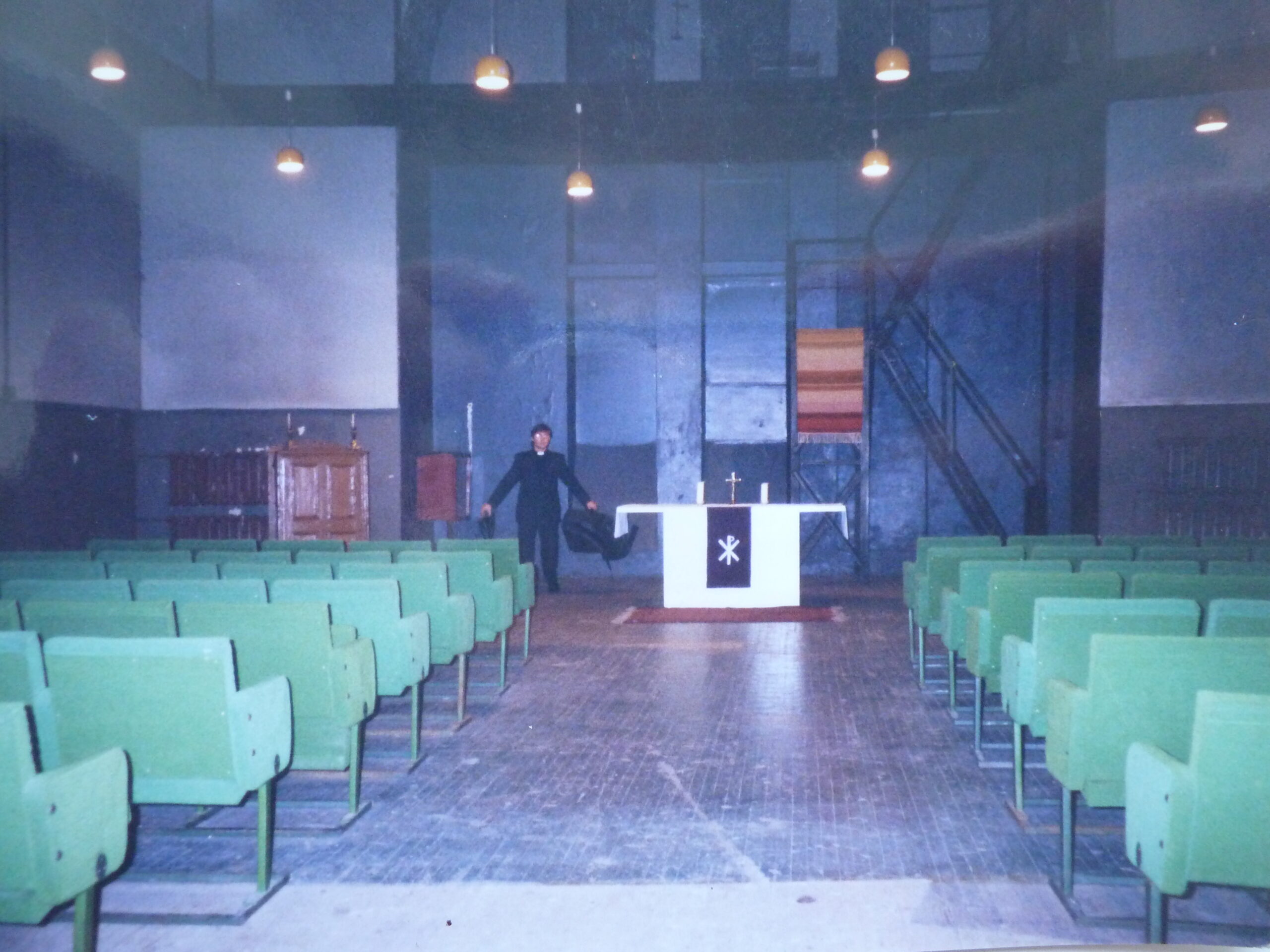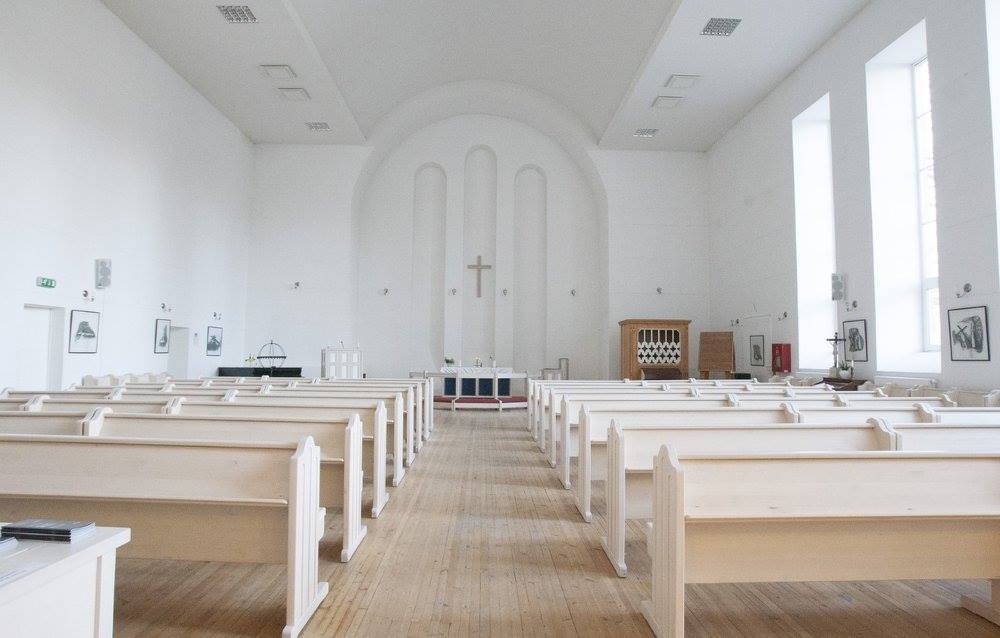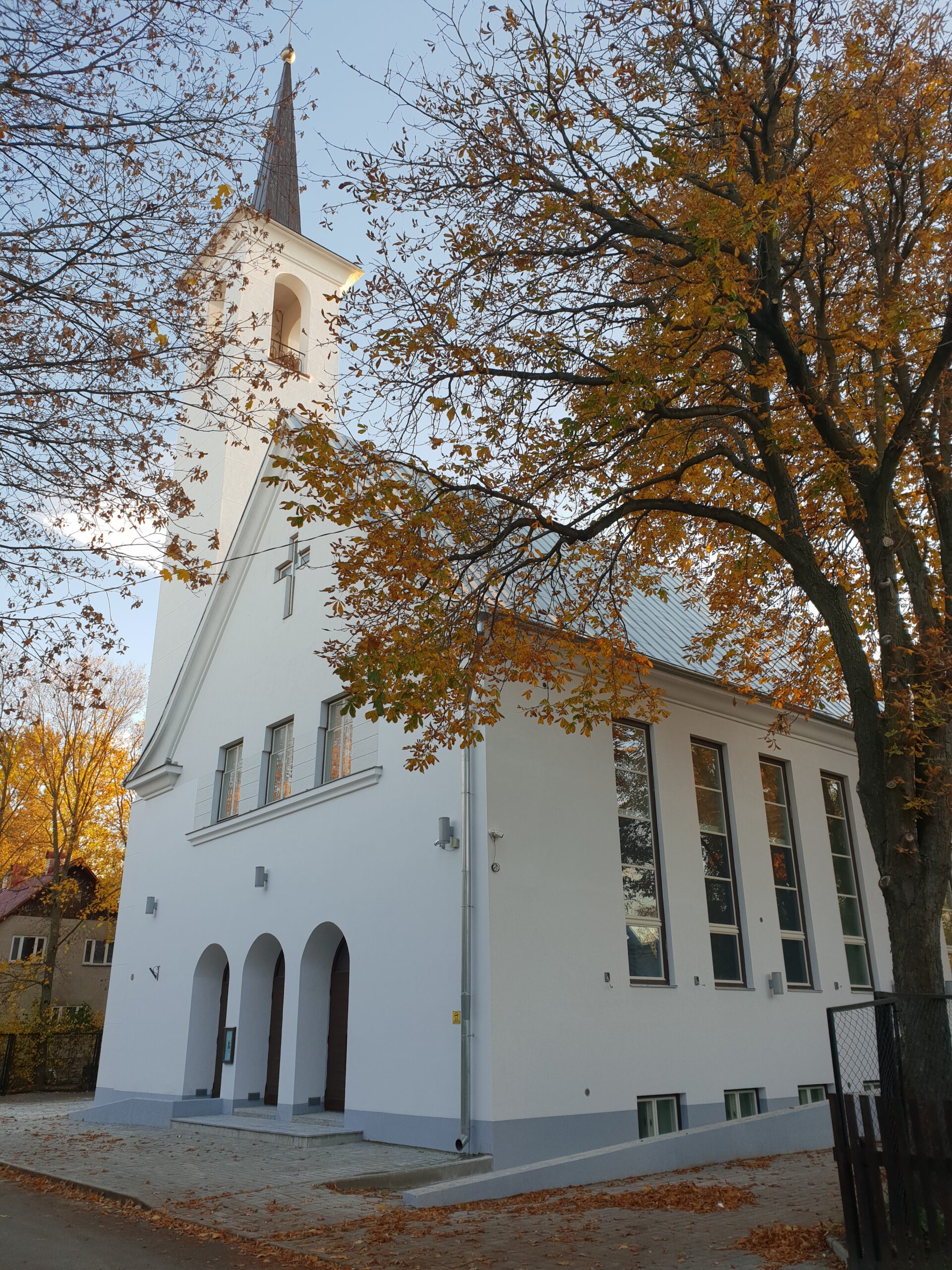They will rebuild the ancient ruins and restore the places long devastated; they will renew the ruined cities that have been devastated for generations.
Isaiah 61:4
Peeteli church was completed in 1938. The building work was led by the Baltic-German pastor Roderich Bidder, who served the congregation from 1929 to 1939. The church was closed by the Soviet regime in 1962 and handed over to Estonian Telefilm, which used it as a film studio and warehouse.
When the church was returned to the congregation in 1993, its windows were bricked up, there was no heating system, and the electrical, water, and sewage systems were in very poor condition. Due to the lack of drainage, water seeped into the basement of the church. The pastor’s office was a windowless sound room from the former film studio, where confirmation courses and pastoral conversations took place.
To improve the economic situation of the congregation, some rooms were rented out. On the second floor of the church, in the former pastor’s apartment, a company selling spare parts for American cars operated in one slightly better-maintained room. The garage next to the church was rented out as a carpentry workshop, but the amounts received from the rent were only sufficient to cover the congregation’s essential expenses. To improve the economic situation and to raise funds for the renovation of the church, the renting of other unused rooms to a real estate company was also considered. Finding a pastor for the congregation in such circumstances was not an easy task.
From 1996 to 2016, Avo Üprus served as the pastor of Peeteli congregation. He brought with him a vision that a socially sensitive, open, and active church should become an integrator and healer within its community, and assistance should begin with those who need it most. Upon becoming pastor, Avo Üprus told the congregation that if God allows, someday in the future, Peeteli church could operate 24 hours a day and provide support to those in need. At that time, this idea seemed unrealistic to very many people.


